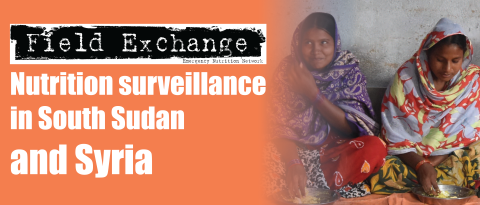Inpatient and outpatient treatment for acute malnutrition in infants under six months; a qualitative study from Senegal
Research snapshot1
Treatment for children aged 6-59 months with acute malnutrition has shifted towards an outpatient, community-based approach, while infants under six months old are mostly treated in hospital. In light of the large problem of malnutrition in infants under six months old in Senegal (5.4% prevalence), a descriptive study was undertaken to describe barriers and facilitators for outpatient and inpatient treatment of care for this age group in a semi-urban setting. In-depth interviews and focus group discussions with mothers of malnourished infants, conducted over four months (July-September 2015) in two case clinics (one inpatient, one outpatient), explored three key factors for a successful nutrition programme: access, quality of care and community engagement.
Nine facilitators and barriers emerged from the data. Outpatient care was perceived to be more accessible than inpatient in terms of distance and cost; mothers were motivated to seek support from community health centres when free infant formula was available as part of care. Trust could be more easily generated in an outpatient setting that mothers were already familiar with. In terms of quality of care in the outpatient setting, the cup-and-spoon relactation technique was used effectively but needed close supervision and basic medical care could be offered to outpatients, provided that referral of complicated cases was adequate. Inpatient care allowed for more intensive health/nutrition education due to more time for individualised support, although this could be done in an outpatient setting. The lack of community-level breastfeeding counselling and community education on breastfeeding was identified as an important gap. In terms of community engagement, the community appeared to play a key role in treating malnourished infants through its influence on health-seeking behaviour, peer support and breastfeeding practices. The level of support to mothers of malnourished infants varied widely and domestic task load of mothers was often a barrier to infant care and breastfeeding. The authors conclude that outpatient care does facilitate access to treatment and the community has the potential to be much engaged, although more attention is required for breastfeeding support. An outpatient community-based treatment approach with an emphasis on breastfeeding should be considered going forwards.
Endnote
1van Immerzeel TD, Camara MD, Deme Ly I, and de Jong RJ. Inpatient and outpatient treatment for acute malnutrition in infants under 6 months; a qualitative study from Senegal. BMC Health Services Research (2019) 19:69 https://doi.org/10.1186/s12913-019-3903-x


